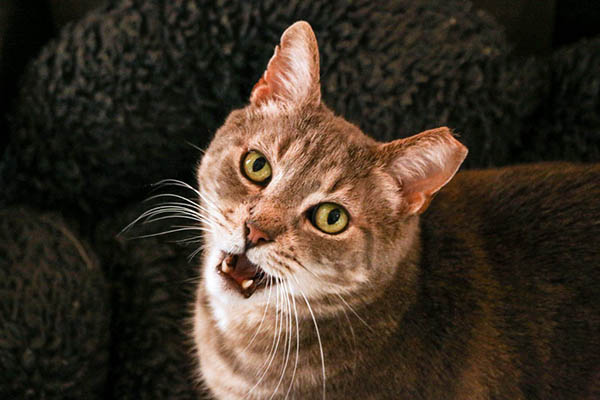
File photo. Anne-Rose Gassot—AFP
World Health Organization experts says felines may be able to get infected from an infected person
A new study published in the journal Science on Wednesday has claimed that cats can become infected with the new coronavirus, but dogs, chickens, pigs and ducks are unlikely to catch the disease.
The study, which was published on the journal’s website, claims that ferrets can also become infected with COVID-19, prompting the World Health Organization to say that it would take a closer look at transmission of the virus between humans and pets.
According to the researchers, the study was intended to determine which animals were most vulnerable to the coronavirus to determine which species would aid in the development of experimental vaccines to fight the ongoing coronavirus pandemic.
COVID-19 is believed to have spread from bats to humans at a wet-market in China’s Wuhan city. Apart from a few, isolated reports of infections in cats and dogs, WHO maintains there is no strong evidence that pets can be carriers. The most high profile case of animals contracting the disease occurred at the Bronx Zoo in New York City, where a tiger tested positive for COVID-19 after interacting with an asymptomatic zookeeper.
The Science study was based on research conducted in China in January and February. It found cats and ferrets highly susceptible to the virus when researchers attempted to infect the animals by introducing viral particles via the nose. They also found cats could infect each other via respiratory droplets and had traces of the virus in their mouth, nose and small intestine. Kittens exposed to the virus developed massive lesions in their lungs, nose and throat.
“Surveillance for SARS-CoV-2 [the scientific name for coronavirus] in cats should be considered as an adjunct to elimination of COVID-19 in humans,” the researchers wrote.
Antibody tests showed dogs were less likely to catch the virus, while inoculated pigs, chickens, and ducks were not found to have any strain of the virus.
“What these data do provide is support for the recommendation that people who are with COVID-19 should be distancing themselves, not only from other household members but also from their household pets, so as not to transmit the virus to their pets, particularly to cats or other felines,” said Daniel Kuritzkes, head of infectious diseases at Boston’s Brigham and Women’s Hospital.
The World Health Organization on Wednesday announced it is working with its partners to more closely examine the role of pets in the health crisis. Based on the evidence so far, Reuters reported, WHO epidemiologist Maria Van Kerkhove told a news conference: “We don’t believe that they are playing a role in transmission but we think that they may be able to be infected from an infected person.”
The WHO’s top emergencies expert Mike Ryan asked people not to retaliate against animals over the outbreak. “They’re beings in their own right and they deserve to be treated with kindness and respect. They are victims like the rest of us.”
